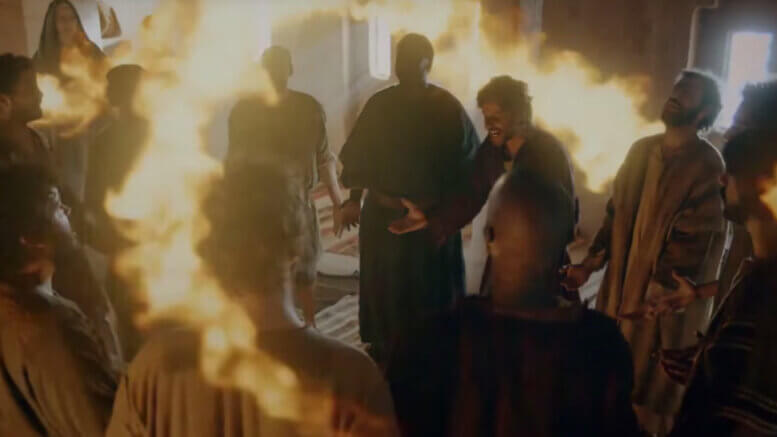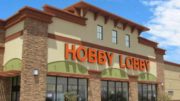There is a vital component to life within the household of faith, which the LORD has provided for us but that has largely gone neglected. As is always the case, when we neglect something God has provided for us or we ignore a command God has given to us, we suffer negative consequences. Luke the physician records for ecclesiastical posterity some of the inner workings of the church in the first century in Acts 2:41-47. He noted:
[T]hey continually devoted themselves to the apostles’ teaching, and to fellowship, to the breaking of bread and to prayer (emphasis mine).
Treatises can be written about each of the four things Dr. Luke noted and that I’ve highlighted above. I will focus on fellowship primarily in this piece. I may visit the others in more detail in subsequent articles.
First, Luke was very intentional in specifying that the early church devoted themselves to these ecclesiastical disciplines continually. It wasn’t a passing fancy. They devoted themselves, gave themselves wholly, to this practice as a matter of regular, consistent, and continual life as the body of Christ. If we read these verses casually we can unintentionally conflate “fellowship” with the “breaking of bread.” But, we would be wrong to do so as those are not synonymous terms.
In the first century, there were no “church buildings,” no basilicas, no specified 501(c)(3) establishments recognized by the national government as churches. The church was then, and still is today, comprised of people. We, the people who have been cleansed by the blood of Christ Jesus and regenerated by the Holy Spirit, are the church. We must transition from this idea of “going to church” to “being the church” (a conversation for another day). Today, the church in America usually meets within designated buildings that we call churches. In the first century, the church generally met in people’s homes.
“Breaking bread” in the first century was very different than what we experience today when we enjoy a meal. If you wanted meat protein then, it usually required a lamb or goat to be slaughtered, cleaned, prepared, and then cooked. If you wanted bread, the preparer would have to gather the necessary wheat, create the dough, and then bake the bread. Sharing a meal in the first century required people to spend hours together. There was no Door Dash, Uber Eats, or pizza delivery service. Neither could you summon a meal through your smart home assistant to order in. It took time.
This meal sharing, then, was accompanied by fellowship. The Greek word Dr. Luke employs there is koinōnia, which means “communion, partnership, social intercourse, and participation.” To state it simply the early church gave themselves wholly to consistent and continued communion together. This communion was a significant part of their continued gathering together for worship. It is a far cry from the weekly 35-45 minute sessions where we’ve reduced corporate gathering to worship together to merely worshipping beside one another. Frankly, many of us have worshipped beside the same people for 5, 10, 15, 20 years or more in some instances and we don’t even know the last names of the people who sit in the next pew over every week.
In that reduced worship framework what we may not realize is that we’ve allowed a relational distance to develop within the ecclesiastical context that allows accusations to flourish. Revelation 12:10 identifies Satan as “the accuser of the brethren.” The Greek word for “accuser” is katēgoros. This is the term from which our English word “categories” is derived. Satan is the one who seeks to divide, stratify, vilify, and thereby destroy the family of God. What we may not realize is that relational distance provides the fertile soil needed for the seed of accusation to grow.
As you know, I’ve been blessed with the melanin-ladened permanent tan (don’t hate me because God made me beautiful). Let’s say that God has sovereignly placed me in a local assembly with let’s call him in “Brother B,” a less melanated (also beautifully made by God) brother. Yet, I have no real relationship with Brother B. We have no fellowship. We don’t really know each other. He’s never been to my house. I’ve never been to his house. We don’t know one another’s children. I just know he sits with his family every Sunday to the left of where my family sits each week.
You get the idea. If an accusation of racism, skin shade-based partiality, is made against Brother B. he is accused of despising me and my family because of the way God made us or because of perceived cultural differences, relational distance between us could allow that accusation to metastasize. I could begin to question Brother B’s love for me, his love for my family, his love for Christ, all because we lacked koinōnia.
Now consider the alternative. “Brother B” and I know each other very well. We spend time together regularly. He’s been to my house. I’ve been to his house. Our families share meals together. We pray together regularly. I’ve heard him cry out to God in prayer for my family, he’s heard me cry out to God for his family. We held and changed each other’s babies’ diapers… the stinky ones. Then, the katēgoros launches an accusation of partiality against “Brother B.” He is accused of despising my family and me because of how God made us or because of our cultural differences. The relational proximity we’ve developed through koinōnia through the years strengthens me to be able to immediately reject that accusation. I can swat it away immediately with a Dikembe Mutombo-like rejection, complete with the finger wave (“No, No, No—ahahahahahah)! Why? Because I KNOW BROTHER B. I know his heart. I know his love for God. I know his love for me, his love for my family. He knows my heart. He knows my love for God. He knows my love for him and for his family.
Koinōnia fortifies us against the katēgoros. Neglecting this aspect of body life has allowed Satan’s accusations to fester and metastasize in the church in our nation today. One of the things we must return to is intentional koinōnia within the family of God. Much of the division we see today can be attributed to a lack of koinōnia. It may require us to re-evaluate and adjust how we worship together. But, the family of God is worth it. In fact, Jesus said the way “all men” would know we are His disciples is through the resplendent display of us loving one another within the household of faith (John 13:35). Koinōnia directly impacts Gospel witness.
SOURCE: THE STAND





